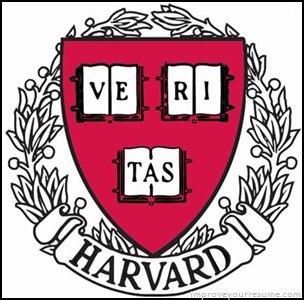Image may be NSFW.
Clik here to view.
Harvard University announced last week that the school is investigating 125 students for possibly cheating on a take-home final exam for “Government 1310: Introduction to Congress.” After reviewing more than 250 take-home exams turned in last Spring, the Harvard College Administrative Board has opened cases involving nearly half the 279 students enrolled in the class. The school has contacted every student whose work is under review, who now face sanctions that include suspension for up to a year.
In considering whether Harvard may have caused significant long-term damage to its own reputation unnecessarily, let’s ignore some fuzzy facts and conjecture:
- The course, as measured by the professor’s own words and behavior, did not reflect a level of academic rigor one might associate with a prestigious university.
- Take home exams, by their very nature, are generally considered a joke by most students.
- Apparent confusion over at least one of the exam’s questions was exacerbated by the unavailability of the professor during the exam period, causing students to seek clarification from fellow classmates.
- It’s unlikely that such a large proportion of the class would purposely cheat on what appears to be a gut course.
In examining whether Harvard may have caused significant long-term damage to its own reputation by acting in a hasty and imprudent manner, let’s speculate on a few likely catalysts:
- After discovering similarities in the exams, and in advance of sending out letters to the 125 students suspected of cheating, Harvard failed to consider the high likelihood that this issue would quickly become a news item. If the school had acknowledged that risk, Harvard would (or should) have announced the scandal in advance of sending out letters to students.
- Harvard likely became aware of the possibility of negative media coverage either after a call from a reporter, or in reaction to a threat from a student (or their lawyer) to make this a public issue.
- Regardless of when and how Harvard began to think about negative media exposure, the most significant catalyst that caused administrators to blow the whistle on the affair was a post-Penn State fear that Harvard might be accused of hiding or covering up an incident related to institutional integrity.
If this speculation is correct: that Harvard overlooked the potential media impact of its cheating inquiry, and then blew the whistle on itself mainly as a knee-jerk defensive strategy….here are two fundamental PR lessons from this brand debacle:
- Assume the press will always learn about a problem, and plan an offensive strategy (well ahead of time) to minimize the damage. Because Harvard has long enjoyed a pristine reputation, it’s likely that their PR professional was not involved in this issue from the outset, or they had little input.
- If the press is on your damaging story, or is likely to be very soon, sometimes it’s better to keep your powder dry if you haven’t planned ahead. Harvard would have been better served if the school had completed its inquiry of the 125 “cheaters” in advance of its public announcement. Even with the media pounding on its doors, Harvard would have provided those 125 students and the school’s reputation with greater justice by responding publicly that “the issue is under investigation and a public statement will be issued only after all the facts and opinions are considered.”
Ham-fisted, panic motivated PR – even when it’s disguised as a self-righteous effort to maintain academic integrity – is not behavior you’d expect from one of the nation’s smartest institutions.
Image may be NSFW.
Clik here to view.
 Image may be NSFW.
Image may be NSFW.Clik here to view.
